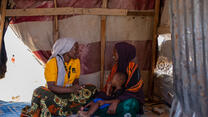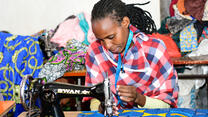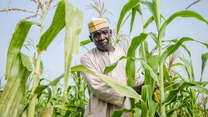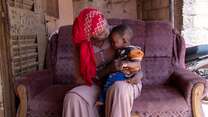Nearly 80 million people are displaced worldwide, the majority of whom are making their way to cities. Cities are beacons of economic opportunity. However, opportunities are frequently out of reach for refugees, and other vulnerable residents in these cities. As a result, urban refugees struggle to find sustainable livelihoods and achieve long-term self-reliance. At the same time, programs to support them lack investment and evidence to show what works.
For the past five years, the International Rescue Committee (IRC) and the IKEA Foundation have been solving this challenge through the Re:BUiLD (Refugees in East Africa: Boosting Urban Innovations for Livelihoods Development) program. In partnership with the IKEA Foundation, Re:BUiLD brings together the International Rescue Committee (IRC), the Center for Global Development (CGD), Open Capital (OCA), Kampala Capital City Authority (KCCA) and Nairobi City County Government (NCCG). Re:BUiLD is committed to generate and share evidence for innovative, sustainable livelihood solutions that can be adopted to support refugees and host residents in other cities in East Africa and beyond.
Re:BUiLD conducted two large-scale randomized controlled trials (RCTs) in Kampala, Uganda and Nairobi, Kenya with a total of 4,000 participants. Both looked at one common dimension of livelihood programs supporting microentrepreneurs: mentorship services where the mentors were microentrepreneurs themselves. Administered from the IRC’s Livelihood Centers in each capital, the studies have the potential to inform IRC’s programming around the world as well as many other policy organizations looking to improve microentrepreneurs' livelihoods in urban settings.
In this research brief, we focus on the impact on economic and psycho-social outcomes of mentees and the results from the cost effective analysis conducted by the IRC’s Best Use of Resources team. We highlight differences in results for participants according to their refugee status and gender and offer recommendations for practitioners, researchers, and policy makers.



